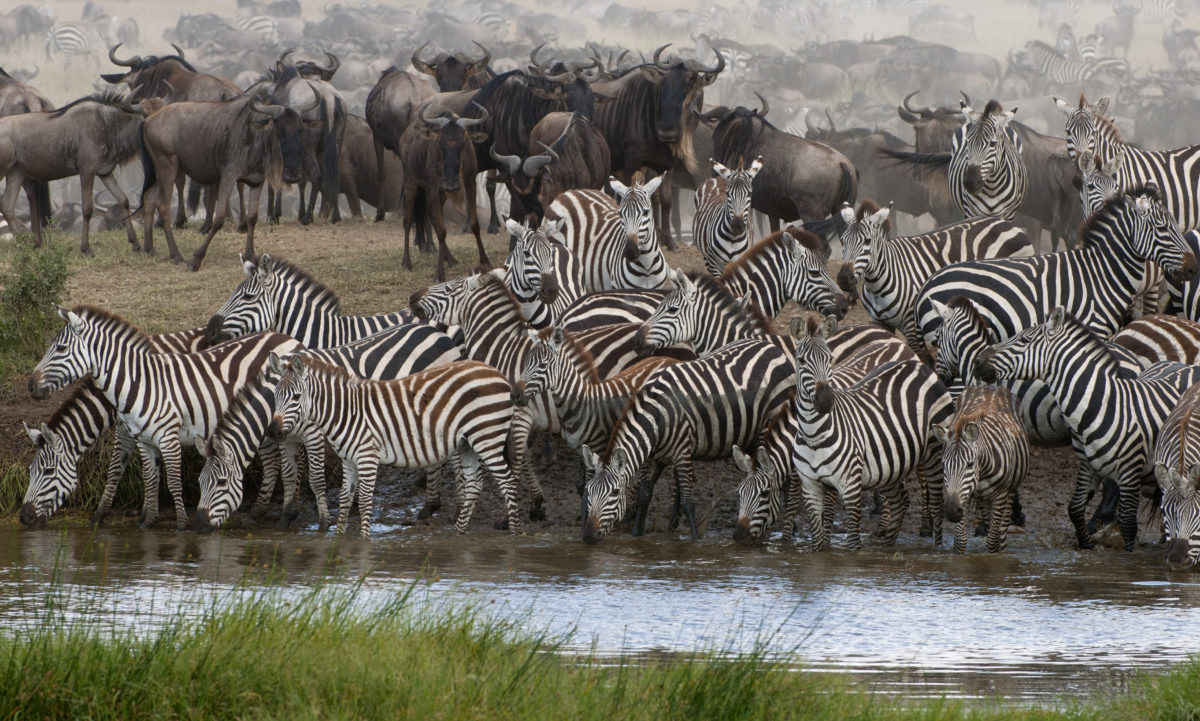Evolutionists (such as Darwin and his followers) deny the existence of species or maintain that it is impossible to define species. But if this were the case, how could a book on the origin of species (including Darwin’s own work) make any sense? In fact evolutionists are incoherent in their adoption of the notion of species. Darwin had to deny the existence of species in order to introduce the idea of transformation of species. This is why he made such bold claims like “No line of demarcation can be drawn between species”.1 But in the course of his work he changes his mind without admitting it. Having said that species are indistinguishable he says that there are “true species” and “intermediate species”. Those “intermediate” are the initial stages of the production of those “true” or “distinct” species. Hence, it seems as if in Darwin’s mind species do not exist but, yet exist.
This kind of confusion has entered biology and will remain there as long as macroevolutionary theories will drive the interpretation of data. The reason is that it is impossible to postulate transformation of species and at the same time maintain a clear definition of species. Aristotle and Aquinas did not doubt that species exist and that we can define them. Moreover, if evolutionists claim that species arise from one another and all species share one ancestor they need to have some definition of species. To avoid the type of confusion introduced by Darwin we will distinguish four ways of understanding species:
Logical species — the idea of species taken as a logical subcategory of the broader category of genus. In this sense, species can be attributed to individuals quite arbitrarily, simply by projecting new working definitions on different classes of beings. Species, taken in merely a logical sense, is a relative term that simply maintains a distinction between classes and sub-classes of a group of objects or organisms. Examples of logical species include: a revolver which is a species under the genus “firearm”, hummer is a species under the genus “hand tool”, an oak tree is a species under the genus “deciduous trees”. Nominalists, i.e., those who claim that species do not exist, understand them only in this way.
Metaphysical species — a species predicated with respect to a substantial form. Metaphysical species includes beings that have the same substantial form.
Natural species — natural kinds of living organisms, such as dogs, cats, cows and horses. Natural species can be defined according to the three levels of the human knowledge.
- In natural science (biology), a natural species are living beings belonging to the same genus or family according to the classical taxonomy.
- In philosophy, a natural species includes organisms that share the same nature. In this context “nature” is defined by Aquinas as “the essence of a thing as it is ordered to the proper operation.” From the metaphysical perspective, natural species can be seen as living composites of form and matter that share the same substantial form.
- In theology, natural species may be identified with kinds mentioned in Genesis 1.
Biological species (or modern scientific notion of species)—according to one modern definition by Ernst Mayr, a biological species signifies all populations in which individuals are prospectively able to interbreed in their natural environment and produce fertile offspring.
Only the third understanding of species (as natural species) is relevant in the controversy over evolution. Macroevolution assumes that new natural species (not biological species) can emerge from the previous ones. This also helps settle the difference between micro- and macroevolution. Microevolution includes all changes occurring within natural species whereas macroevolution postulates transformation and emergence of new natural species. We have defined natural species according to three realms of human knowledge (natural science, philosophy, and theology). This means that whether we approach evolution from a theological, philosophical, or scientific perspective the problem is always the same: Can new natural species emerge through evolution? And this is the subject of the debate.
[1] C. Darwin, The Origin of Species, London: John Murrey, 1859, p. 57, cf. 470.
